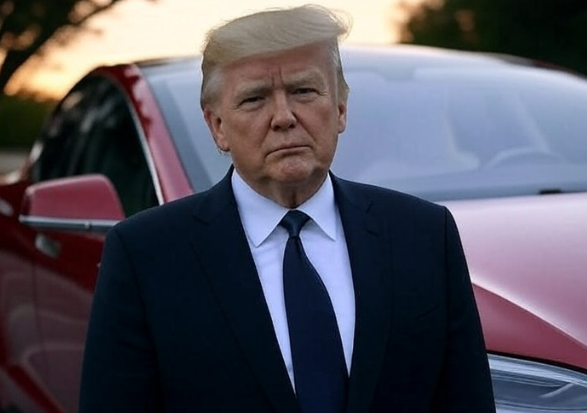Trump’s ‘Big Beautiful Bill’ That Sparked a Feud with Elon Musk:Donald Trump’s much-hyped “Big Beautiful Bill” has triggered a fierce political and personal clash with billionaire Elon Musk. Once a major Trump backer, Musk is now leading a rebellion against the bill, warning it will hurt innovation and kill jobs. In response, Trump has threatened to cut off billions in federal subsidies to Tesla and SpaceX and even questioned Musk’s citizenship. As the feud intensifies, markets are reacting, lawmakers are divided, and the future of U.S. politics and clean tech funding hangs in the balance. This article breaks down who benefits from the bill, who loses, and why this battle could reshape Washington.
Trump’s ‘Big Beautiful Bill’ That Sparked a Feud with Elon Musk: Who Stands to Gain and Who Could Lose?
The rivalry between Elon Musk and President Donald Trump is escalating into a full-blown political and economic showdown. What began as policy disagreement has quickly turned into a bitter and personal conflict between two of the most influential figures in the United States. The feud, which has already shaken financial markets and rattled Washington insiders, now threatens to upend the relationship between big tech, clean energy, and the federal government.
At the heart of the controversy is Trump’s much-promoted legislative proposal — dubbed the “big beautiful bill.” Initially, Musk criticized the bill on economic and environmental grounds, warning that it would harm innovation and kill jobs. But the situation turned dramatically more hostile when Musk openly endorsed the formation of a new political party and began actively opposing the bill and those who supported it.
This move infuriated Trump, who had previously enjoyed Musk’s support. In fact, Musk reportedly spent over $250 million backing Trump during the 2024 presidential campaign. But the alliance has now collapsed. Trump lashed out publicly, threatening to cut off federal subsidies to Musk’s companies — Tesla and SpaceX — and even hinted at revisiting Musk’s immigration and citizenship status.
The stakes are enormous. Tesla could lose between $1.2 billion and $2 billion annually in EV tax credits, in addition to another $2 billion from regulatory credit sales if emission regulations are scaled back. SpaceX is also at risk, as the company depends heavily on government contracts for satellite launches, military payloads, and other space missions. The potential pullback in federal support could deal a severe blow to Musk’s empire.
Markets are already reacting. Tesla stock dropped 7% on Tuesday, following a 2% decline the previous day. These losses come after a 14% plunge in early June when news of their initial spat first broke. Investors are concerned that Trump may follow through on his threats to scrutinize Musk-linked contracts and subsidies, causing long-term damage to both Tesla and SpaceX.
The conflict has taken a highly personal turn. Trump suggested Musk “head back to South Africa,” raising questions about the legality and extremity of such rhetoric. Musk, who became a U.S. citizen in 2002, is now facing scrutiny over his immigration process.
While legal experts note that denaturalization is exceptionally rare and requires clear evidence of fraud, the mere mention of this possibility has sparked legal and political debates across the country. Between 1990 and 2017, the U.S. government pursued only a handful of denaturalization cases per year, making this threat more symbolic than likely — but no less serious in its implications.
Musk has denied any wrongdoing and dismissed concerns about his past visa issues, calling them a “legal gray area.” However, Trump’s allies have floated the idea of the Department of Government Efficiency (Doge) investigating Musk’s vast business empire for potential irregularities.
In response, Musk has floated plans to form a new political outfit — the America Party — and has vowed to spend even more money to unseat lawmakers who support Trump’s legislative agenda. Musk is reportedly preparing to fund primary challengers in the 2026 midterms, particularly targeting Republicans who back the “big beautiful bill.” He has also mocked the GOP as the “Porky Pig Party,” further deepening the rift.
The Musk-Trump feud is already spilling over into Capitol Hill, with House members now under intense pressure ahead of upcoming votes. As both camps dig in their heels, this power struggle is no longer just a clash of egos. It is now a defining moment for the future of American politics, innovation, clean energy, and billionaire influence on democracy.
As the situation continues to unfold, the world watches closely. The outcome of this feud could reshape not just the relationship between Washington and Silicon Valley — but the very balance of power in America’s political and economic landscape.

